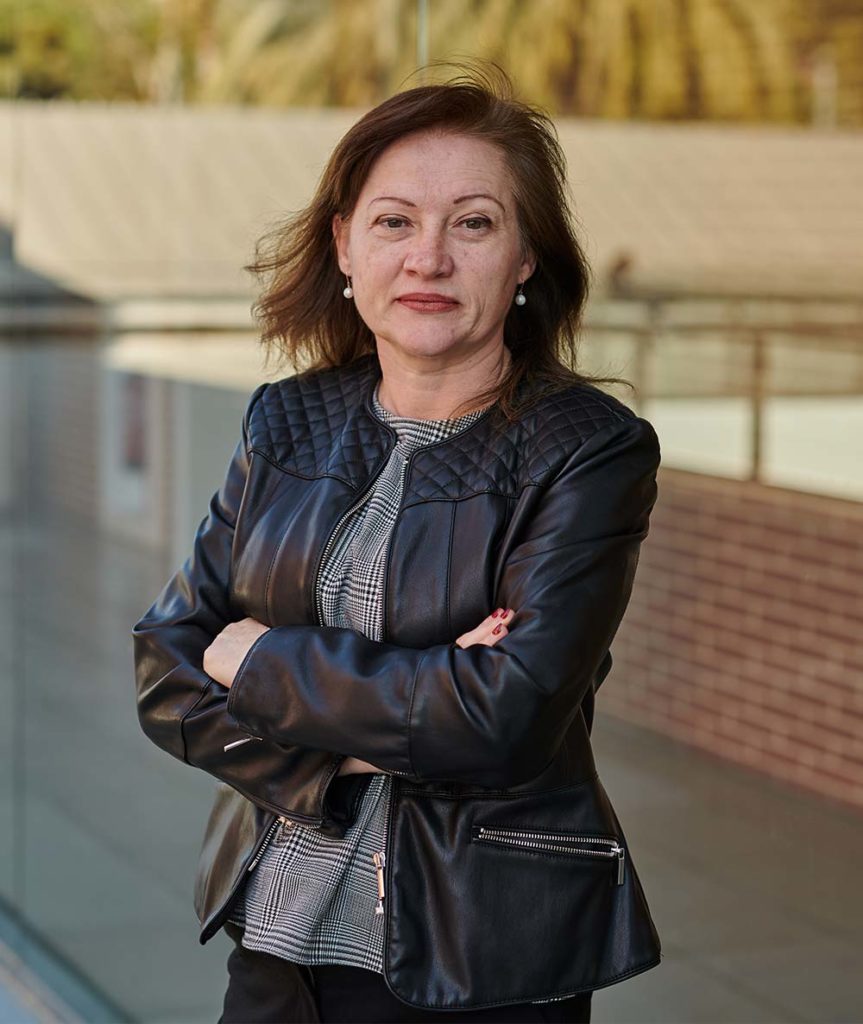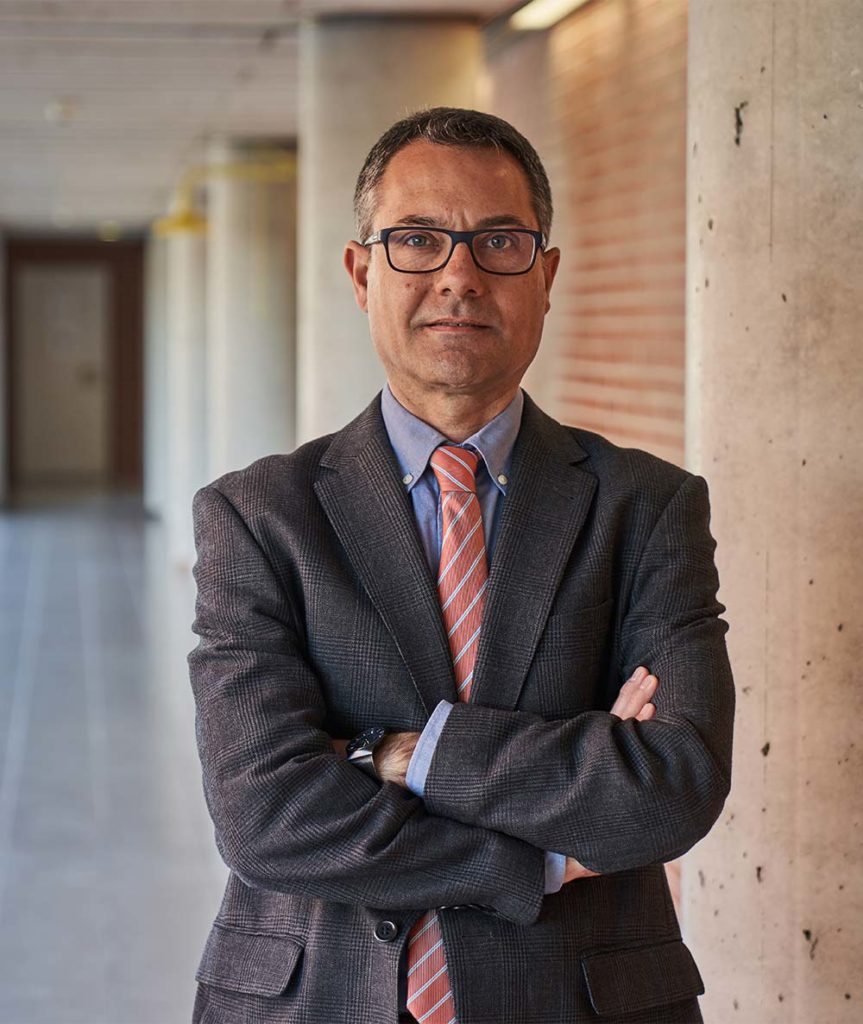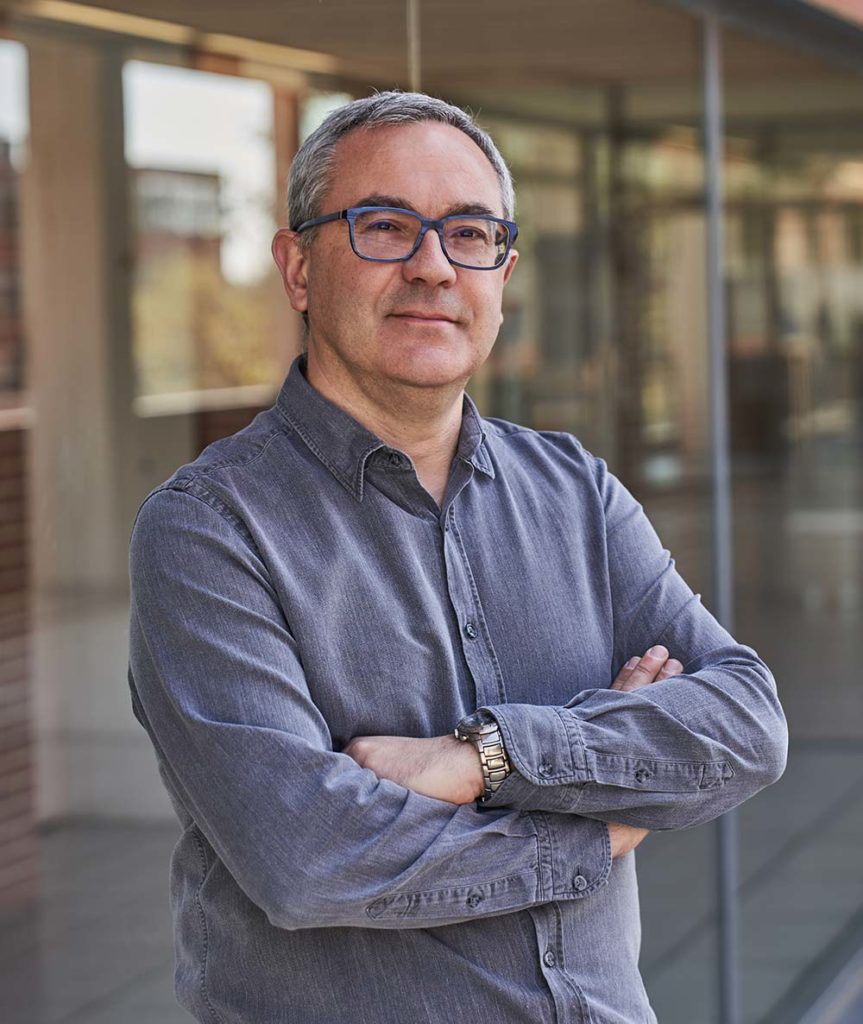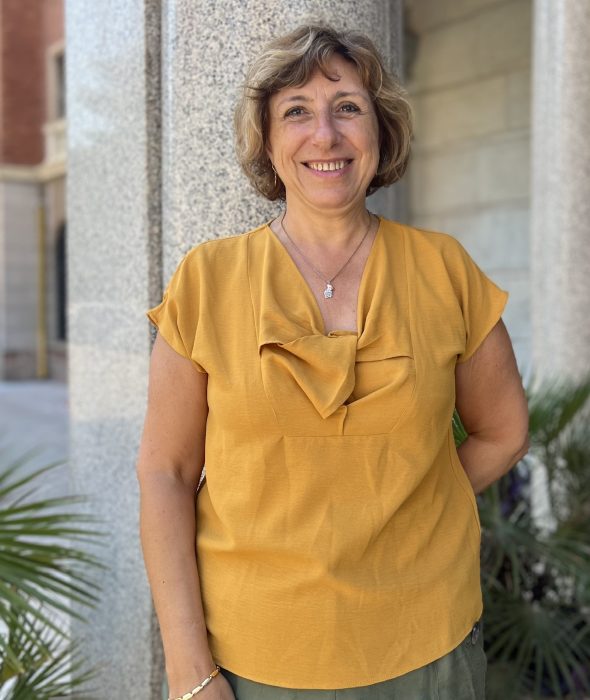Medicinal Chemistry & Pharmacology
Medicinal Chemistry & Pharmacology
Medicinal Chemistry & Pharmacology
Who We Are
Medicinal Chemistry and Pharmacology (MCP) is located at the Faculty of Pharmacy and Food Sciences of the University of Barcelona.
MCP is a multidisciplinary group that combine expertise in organic and medicinal chemistry and in pharmacology.
Thus, we are experts in: fundamental reactivity and synthetic development; hit discovery regarding specific targets; hit to lead optimization; perform in vitro and in vivo experiments in relevant models of diseases; advanced steps related to improvement of PK/PD parameters; industrial refinement of approved drugs, intellectual protection, etc.
MCP is managed by the experienced full professors at the University of Barcelona: Mercè Pallàs, Rodolfo Lavilla, Carmen Escolano, Diego Muñoz-Torrero and Santiago Vázquez.
The five groups have their own funding and independent research but, importantly, share common goals, lab space, equipment, expenses, etc. and collaborate among them in a number of public and private funded projects. Also, the team has steady collaborations with external partners in several fields.
This permanent staff is completed with postdocs, which lead their own research and help tutoring PhDs and MS students in the group. Also, we steadily have a flow of foreign students (Erasmus, exchange deals, collaborations, etc.). The group has relevant impact at the academic level, with presence in conferences, editorial boards, invited lectures around the world, sounding collaborations, projects, etc.
Research Groups
News

Alba López was selected to present her project at the Demoday of the Llavor 2023 Program
Six months ago, Dr. Carmen Escolano received the Llavor project 2023, one of the modalities of the program “Indústria del…

Dr Ana Guerrero and Dr Mercè Pallas participated in the “Nanomedicine Meets Neurodegeneration Workshop: Pathways to Precision Therapies”
Dr Ana Guerrero and Dr Mercè Pallas participated on July 16 in the “Nanomedicine Meets Neurodegeneration Workshop: Pathways to Precision…

Great success of the X Young Researchers Symposium of the SEQT
The X Young Researchers Symposium from the Spanish Society of Medicinal Chemistry (SEQT) was celebrated last Friday 12th in Madrid.…

1st IBUB Early Career Day
The 1st IBUB Early Career Day was celebrated last June 14th, an event that was proposed and coordinated by Anna…
Selected Projects
“A first-in-class anti-Alzheimer lead that blocks multiple early disease
mechanisms”. Agència de Gestió d’Ajuts Universitaris i de Recerca (AGAUR) – Indústria del Coneixement – Project PRODUCTE (2023 PROD 00079). Amount: 150.000 €. From Feb 2024 to Jul 2025. PI: Diego Muñoz-Torrero
“Dual-acting molecules as an innovative strategy to treat pain”
Caixaresearch Consolidate, “La Caixa Banking Foundation”, CI22-10176. Amount: 300.000 €. 2022-2024
PI: Santiago Vázquez (UB).
“New insights on I2 imidazoline receptors role in neuroinflammation. Identification and validation as a target for Alzheimer’s disease” Ministry of Science and Innovation (Spain). Projects I+D+i (SPAIN). PID2022-138079OB-100. Funds: 150.000,00 From 2022 to 2025. PI: Mercè Pallàs (UB)
“Validation of dual inhibition G9a/GSK-3b as a new therapeutic strategy for cognitive decline and Alzheimer’s disease” Ministry of Science and Innovation (Spain). Projects I+D+i (SPAIN). PID2022-1390616-OA-100. Funds: 130.000,00 From 2022 to 2025. PI: Christian Griñán Ferré (UB).
“Understanding the Contribution of Cellular Senescence to Alzheimer’s Disease”. Ministry of Science and Innovation (Spain). Projects I+D+i (SPAIN). PID2022-138829OA-100 Funds: 170.000,00 From 2022 to 2025. PI Ana Guerrero Lopez (UB).
“Phosphoiminoproline LPIP, a disease-modifying drug for Alzheimers disease”.
Ministry of Science and Innovation (Spain). Projects I+D+i (SPAIN). Proof of concept 2022. PDC2022-133441-I00. Amount: 132.250,00 €. 2022-2024.
PIs: Carmen Escolano (UB), Rodolfo Lavilla (UB).
“Noves molecules duals: una estratègia innovadora pel tractament del dolor crònic.”
PRODUCTE (AGAUR; Generalitat de Catalunya), 2021 PROD 00181. Amount: 99.986,25 €. 2022-2024
PI: Santiago Vázquez (UB).
“Una nova classe de compostos que bloquegen múltiples mecanismes inicials de malalties neurodegeneratives”.
LLAVOR (AGAUR; Generalitat de Catalunya), 2021 LLAV 00082. Amount: 20.000,00 €. 2022-2023.
PI: Diego Muñoz-Torrero (UB)
“Medicinal Chemistry and Pharmacology of Neurodegenerative diseases”
2021 SGR 00357. Recerca (AGAUR) del Departament de Recerca i Universitats de la Generalitat de Catalunya. Amount: 60.000 €. 2021-2024.
Coordinator: Carmen Escolano (UB)
“A new pan-coronavirus therapeutic concept to address present and future infections: targeted degradation of the conserved 3CLpro”.
Fundació La Marató de TV3, 202135-30. Amount: 300.000 €. 2021-2023.
PI: Santiago Vázquez (UB).
“Síntesis de compuestos con mecanismos innovadores contra enfermedades neurodegenerativas y dolor neuropático”.
Ministry of Science and Innovation (SPAIN). PID2020-118127RB-I00. Amount: 272.250 €. 2020-2023.
PIs: Diego Muñoz-Torrero (UB) and Santiago Vázquez (UB).
“Ca2+-Dependent block by memantine and selective inhibition of overactive NMDA”.
National Institutes of Health (NIH, USA), 135148-2 (subaward of the Federal Award 11R01AG065594-01A1). Amount: 187.580 USD for this subaward (2.823.576 USD for the project). 2020-2025.
PI subaward: Santiago Vázquez (UB) PI Coordinator: Jon W. Johnson (U. Pittsburgh, USA).

Alba López was selected to present her project at the Demoday of the Llavor 2023 Program
Six months ago, Dr. Carmen Escolano received the Llavor project 2023, one of the modalities of the program “Indústria del…

Dr Ana Guerrero and Dr Mercè Pallas participated in the “Nanomedicine Meets Neurodegeneration Workshop: Pathways to Precision Therapies”
Dr Ana Guerrero and Dr Mercè Pallas participated on July 16 in the “Nanomedicine Meets Neurodegeneration Workshop: Pathways to Precision…

Great success of the X Young Researchers Symposium of the SEQT
The X Young Researchers Symposium from the Spanish Society of Medicinal Chemistry (SEQT) was celebrated last Friday 12th in Madrid.…

1st IBUB Early Career Day
The 1st IBUB Early Career Day was celebrated last June 14th, an event that was proposed and coordinated by Anna…




